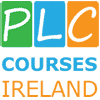
Are you looking for a career change? Making up lost time? Do you need a slip of paper to get that promotion, or maybe you want a new hobby, or to develop your language skills? Whatever your aims, you probably have too many responsibilities to drop everything and head off back to college. Entering full time education can mean hefty debts, a struggle to make ends meet and disconnection from a successful career path: a serious lifestyle commitment. Evening courses, on the other hand, might take up a small chunk of free time and a little cash, but don’t require you to drastically change your life.
Evening courses might not require the same sacrifices as going full time, but that doesn’t limit what you can achieve: it’s possible to spend your evenings doing anything, right up to becoming a doctor, though it’ll take a little longer than the intensive route. Another major benefit of an evening education is an entirely different learning environment. With many students having been out of formal education for significant periods of time, group classes tend to produce a more mature atmosphere. Students understand each other’s apprehension when it comes to learning, and many describe their classmates as supportive and dedicated. Many late night time students arrive after a full days work, have limited time to complete assignments and juggle numerous other responsibilities in their lives, but still enjoy complete courses, and do so successfully. Students tend to come from a much wider range of age groups: age, as they say, is no barrier to learning.
If you’re looking to gain a high level qualification you’ll have to plan ahead, as most providers of university-level courses run their evening courses on a similar schedule to the universities themselves, commencing in September or January each year. You’ll also need to think carefully about your long term future, as undertaking a high level evening course may require you to live near to the learning centre for a substantial amount of time. When studying in the evening, for example, PhDs regularly take at least 6 years to complete. Most universities now run a few of their regular courses with night time options, so your local university is a great place to start the search. By signing up with a major university, you’ll gain access to the extensive facilities (and perks) available to the full time students, and benefit from the universities reputation. Most courses at this level require prior lower level qualifications or extensive relevant experience, though if you’re doing something with a business focus, decent management experience is often more than enough.
If you want that advanced qualification, but the universities are just too far away (or you prefer to move at your own pace) there’s always the Distance Learning option. This market is dominated by the likes of the Open University, whose courses include almost anything that can be done without extensive onsite tutoring. Advanced photography, design and innovation, criminology and even a PGCE (teaching qualification) are all available. Whilst there are some time restrictions, courses run by centres like the OU are by far the most flexible, as you’ll able to do everything from your own living room, largely as and when you want to. You might not ever meet your tutors, but they will act as useful hands on guides via the Internet. Should it all get too much, you’ll even have the option to leave it alone for a few months.
For most people, the thought of a full on diploma, let alone masters or PhD, might be too much to contemplate. If you’re looking for something a little less long term and a little less strenuous, commonly available options include short courses, many only a few weeks in length, these cover subjects such as languages (at all levels), writing (a subject in which the Irish Writer’s Centre in Dublin attracts particularly prestigious evening lecturers), philosophy, music, child care and film studies. Universities are an equally valuable resource in these kind of areas, though you may find that smaller, private schools and specialised centres offer more flexibility when it comes to schedules and course length. For subjects like languages and music, private tutors (check the local papers) can produce tailor made classes at affordable prices, especially if you can form a group to study together.
Dublin is an obvious centre for Ireland’s evening courses, offering a huge variety of topics at varying levels over dozens of institutions, large and small. Elsewhere, the better known colleges in Galway, Limerick, Cork and Dundalk all offer impressive evening options, as do private schools in Waterford, Sligo and Roscommon (amongst many other areas). If you’re based in a more remote area, you may be able to find more limited courses on offer at local schools or through private tutors, but will have to travel or enrol on a distance learning course to experience more in depth and intensive subject matter.
Just for fun, or as an exercise in CV building and personal development, the large and varied selection of evening courses on offer around Ireland are likely to fulfil your educational needs without interfering with your career. From cheap, large-group courses lasting a few weeks to a full on doctorate that can take several years, there’s plenty on offer to please everyone.
To find an evening course at a location near you, use the following link – https://www.findacourse.ie/courses/ireland/part-time-and-evening/


 Distance Learning and Online Courses are offered in a number of different formats, these include correspondence courses (by post), online via computer or a combination of online and classroom instruction (blended learning).. View
Distance Learning and Online Courses are offered in a number of different formats, these include correspondence courses (by post), online via computer or a combination of online and classroom instruction (blended learning).. View  Further Education and PLCs (Post Leaving Cert Courses) have become a popular alternative to the CAO system here in Ireland. PLC Courses are validated by QQI (Quality & Qualifications Ireland) at levels 5 & 6 of the NFQ.. View
Further Education and PLCs (Post Leaving Cert Courses) have become a popular alternative to the CAO system here in Ireland. PLC Courses are validated by QQI (Quality & Qualifications Ireland) at levels 5 & 6 of the NFQ.. View  Continuous Professional Development (CPD) helps to keep job skills and professional knowledge up to date and ensures the standard of registrations & qualifications are maintained.. View
Continuous Professional Development (CPD) helps to keep job skills and professional knowledge up to date and ensures the standard of registrations & qualifications are maintained.. View  Evening courses and part time learning options are a great way to enhance a CV, to socialise and make friends, as well as learn something completely new. There are an abundance of night courses and evening classes available.. View
Evening courses and part time learning options are a great way to enhance a CV, to socialise and make friends, as well as learn something completely new. There are an abundance of night courses and evening classes available.. View